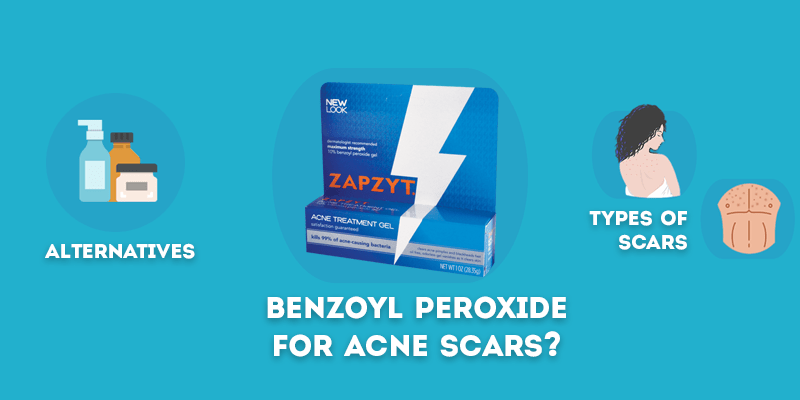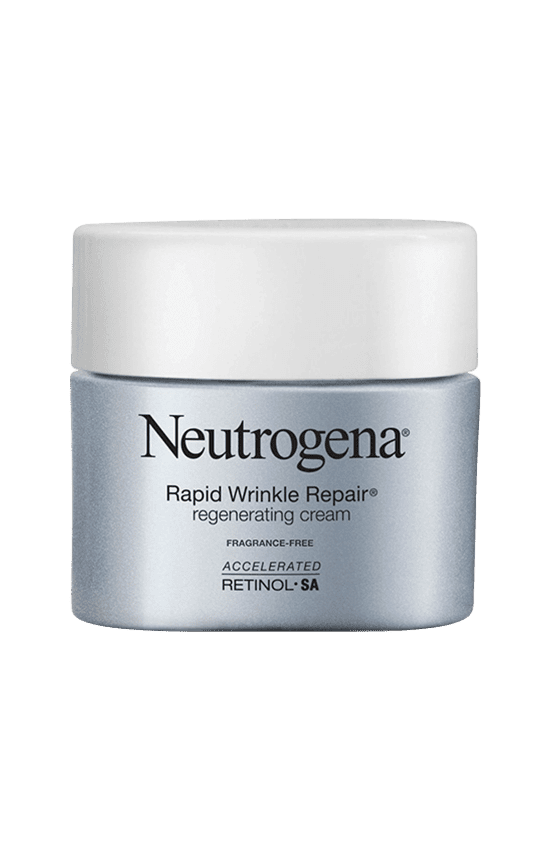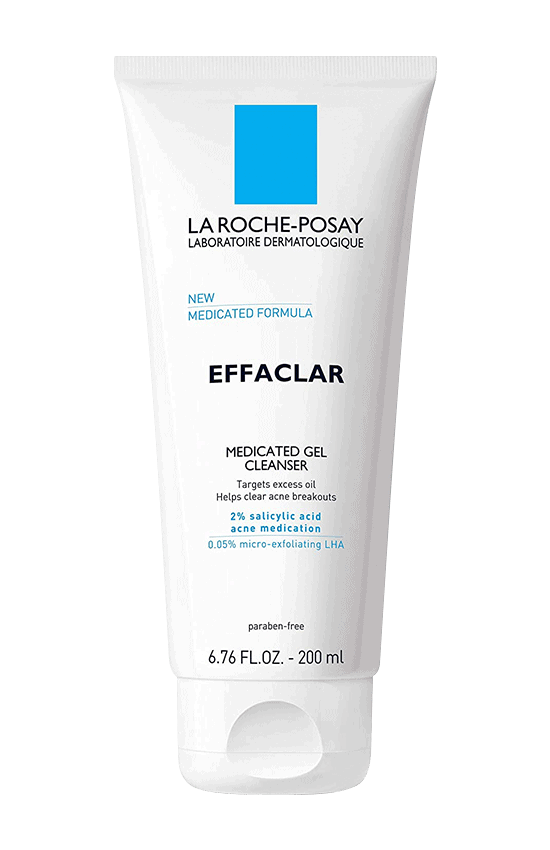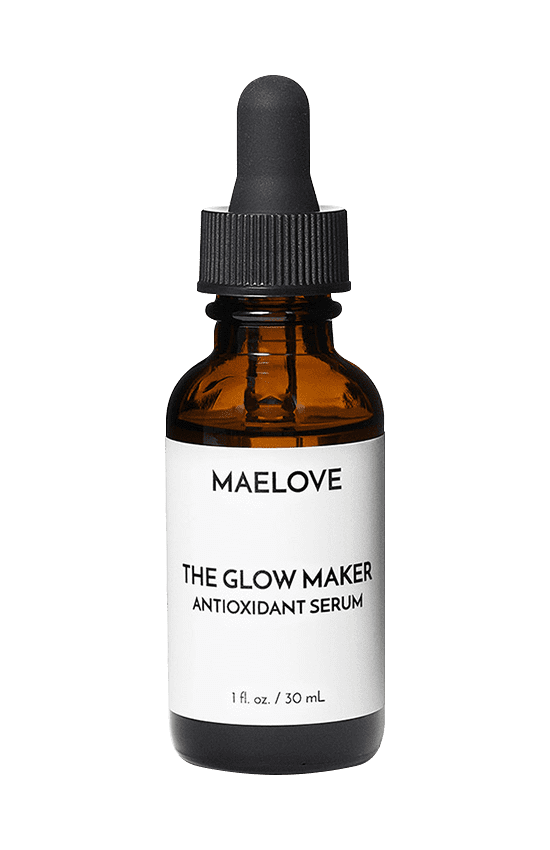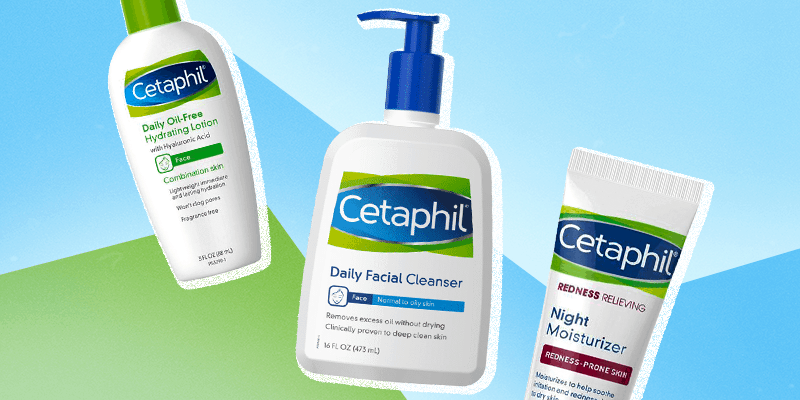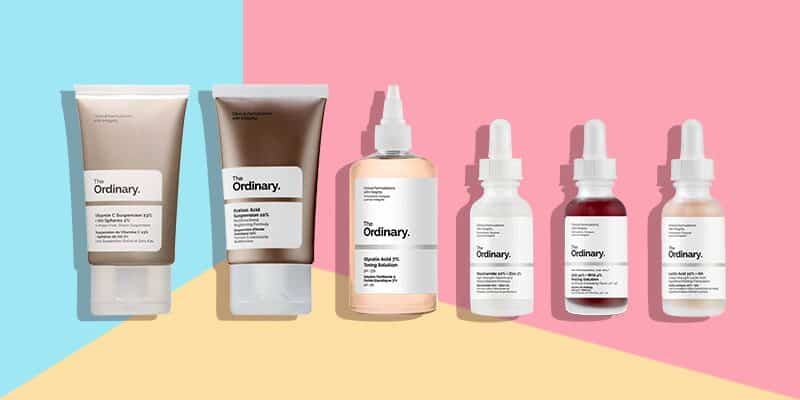Hailed as the wonder drug in the fight against acne, benzoyl peroxide is known for its versatility and effectiveness in treating active blemishes. Unfortunately, using benzoyl peroxide for acne scars will not deliver desirable results. Luckily, there are many alternatives.
What is Benzoyl Peroxide?
As one of the most popular treatments for active acne, benzoyl peroxide is considered the gold standard in many acne medications. Because the ingredient is both inexpensive and effective, it is often the first line of defense in many of the most common treatments on the market today. The ingredient works by killing the bacteria that clogs pores and causes acne. The strength of benzoyl peroxide varies between 2.5 and ten percent, with the weaker concentrations available in over the counter (OTC) products.
Does Benzoyl Peroxide Help Fade Acne Scars?
Although the product is the undeniable workhorse of active acne treatments, benzoyl peroxide is not effective in treating the scarring that is left behind by blemishes. What benzoyl peroxide can provide is an effective deterrent to acne forming in the first place, ultimately working to prevent acne scars from developing.
Benzoyl Peroxide for Active Acne
As an antimicrobial, benzoyl peroxide works to treat active acne by reducing the number of bacteria on the surface of the skin. The importance of stopping acne before it spirals out of control cannot be overstated. The treatment should be aimed at clearing up the acne flare-ups before the scarring occurs. It is important to select the appropriate therapies to treat the acne before the scars take hold because reducing the look of scarring is more challenging than treating active blemishes.
How to Remove Acne Scars
If the acne scars have already developed, there are products designed to reduce the appearance of the scarring. Depending on the severity of the scarring, you can choose OTC options or go to a dermatologist to discuss professional treatment protocols. When in doubt, it is always best to go to the professionals for advice and treatment.
Alternatives to Benzoyl Peroxide For Acne Scars
If you are looking for an alternative treatment to the standard benzoyl peroxide protocol, these four options are good choices to consider:
1. Chemical Peels
A chemical peel is a technique used to improve the appearance of the skin on the face, neck or hands. Because there are different levels of penetration and intensity, chemical peels can be customized to each user's personal need and preference. There are various peeling agents available, with glycolic acid being the most commonly used alpha hydroxy acid. Although there are chemical peels available for use as an OTC method, it is recommended to start with the consultation of a professional. A dermatologist or spa service is likely to deliver the most effective and long-lasting results.
2. Punch Grafting
Some acne scarring is more difficult to treat than others. Deep ice pick scars pose some of the biggest challenges. Fortunately, the procedure of punch grafting has proven effective in minimizing the appearance of scarring. In this procedure, a doctor punches a hole into the skin, removes the scar, and then inserts new unblemished skin in its place. The new plug of skin is usually taken from the behind the patient's earlobe. Although this does leave behind a new scar, it is less conspicuous than the original acne scar. Further resurfacing can be undergone to improve the appearance of the new scar.
3. Azelaic Acid
The naturally occurring dicarboxylic acid isolate works to depigment the skin if the acne scarring is related to post-inflammatory hyperpigmentation. Those who use azelaic acid typically see an improvement to the pigmentation surrounding the scar after approximately 24 weeks of treatment. When treating scars related to acne, the acid is usually used in the form of a 20 percent cream product.
4. Hydroquinone
Like azelaic acid, hydroquinone is used if the acne scarring is in the post-inflammatory hyperpigmentation stage. As a topical skin bleaching agent, the ingredient has proven highly effective in lightening the skin and working to improve the appearance of scarring. The agent is also used to lighten freckles, age spots, and other instances of uneven skin tone.
FAQ:
Can benzoyl peroxide make acne scars worse?
There are many acne scar products on the market. However, benzoyl peroxide is not one of them. Because it is not used in the treatment of acne scars, it also cannot make them worse. However, the compound can make the skin appear to be more inflamed and irritated. This is especially true if you have sensitive skin. Fortunately, there is a host of alternatives available for the treatment of acne scars. First and foremost is the gold standard of salicylic acid.
How long does benzoyl peroxide take to clear away acne?
In general, benzoyl peroxide takes four to eight weeks clear up acne. It is important to be consistent and diligent in order to achieve desired results.
Does benzoyl peroxide whiten your skin?
No, benzoyl peroxide does not whiten your skin. It does not contain any mechanisms that would cause your skin to permanently change color. However, users should be warned that fabrics that come in contact with benzoyl peroxide, including towels, bed sheets and clothing, may be bleached.
Can benzoyl peroxide bleach your hair?
A study from 1973 reported that a 15 year old girl suffered from scalp and eyebrows being bleached following the user of benzoyl peroxide. However, it notes that previously, side-effects similar to this have never been reported. It's recommended to try to keep benzoyl peroxide contact to acne lesions. As noted above, benzol peroxide will bleach towels and fabrics.
